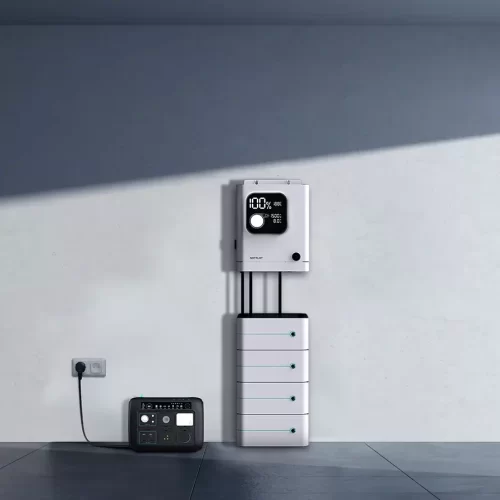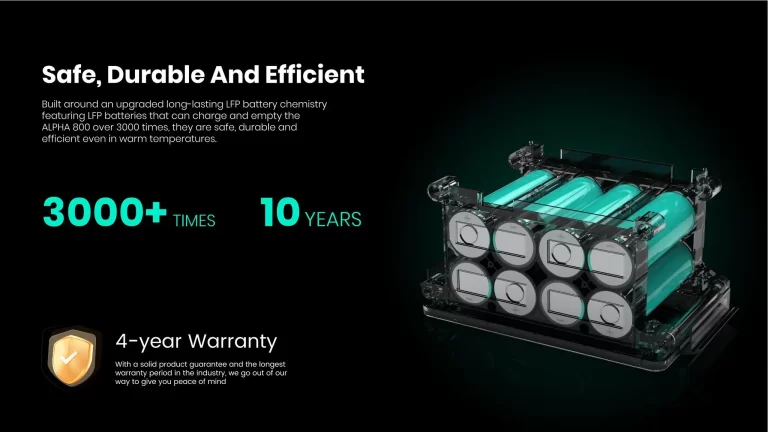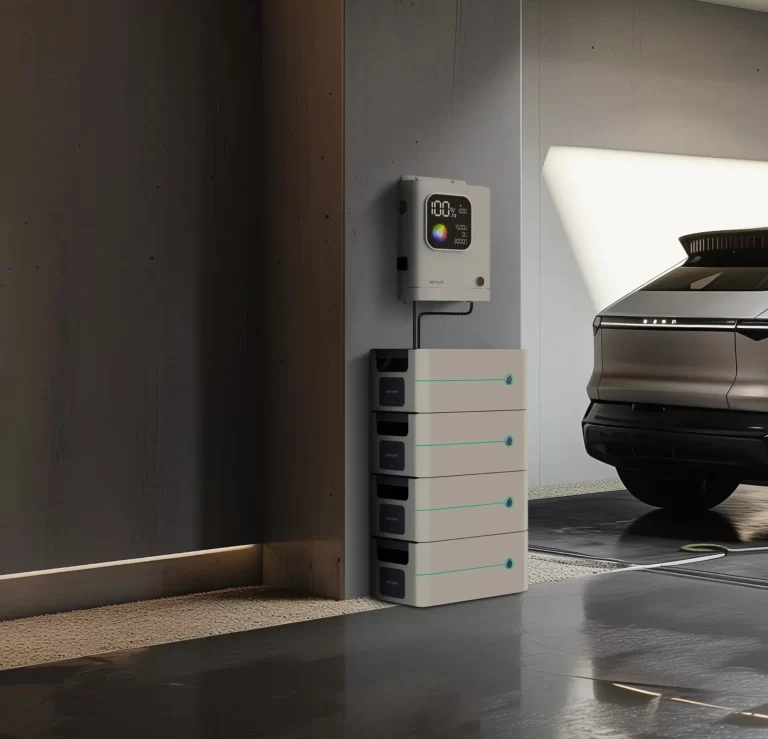In the global context of pursuing sustainable development, solar energy, as a clean and renewable form of energy, is receiving more and more attention. Solar home energy storage inverters, as key components in solar energy systems, are gradually becoming important promoters of the green energy revolution. This paper will take a closer look at the current status of solar home storage inverters, future trends, market growth, and their impact on residential energy systems, with a special focus on how innovative solutions such as the Alpha3000 are leading the industry forward.

I. The Current Status of Solar Home Energy Storage Inverters
In recent years, solar home energy storage inverter technology has made significant progress. These devices not only achieve the efficient conversion of direct current (DC) generated by solar panels to household alternating current (AC), but also integrate intelligent monitoring and energy management systems, providing families with a more convenient and intelligent way to use energy.
According to the latest data released by the International Energy Agency (IEA), by the end of 2023, global solar power generation had exceeded 1,000 gigawatts (GW), with residential solar systems occupying a sizable market share. With the continuous maturation of solar technology and cost reduction, the market demand for solar home energy storage inverters continues to grow, becoming an important force driving the development of the entire industry.
II.The Future Trend of Solar Home Energy Storage Inverters
- Efficiency Improvement: With the continuous progress of semiconductor materials, control algorithms, and heat dissipation technology, the efficiency of solar home energy storage inverters will be significantly improved. Higher conversion rates mean that more solar energy will be converted into usable electricity, thus improving the overall performance of the system. It is expected that in the next few years, the conversion rate of solar home energy storage inverters is expected to exceed 98%, providing families with more economical and efficient energy solutions.
- Integration with Smart Home Systems: The rapid development of smart home technology provides a broader application space for solar home energy storage inverters. Through seamless connection with smart home systems, solar home energy storage inverters can realize real-time monitoring and control of energy use, helping families achieve intelligent management and optimization of energy. For example, families can adjust the operation status of the solar system according to actual demand, reduce unnecessary energy waste, and improve energy use efficiency.
- Alpha3000: A Beacon of Innovation The Alpha3000 solar home energy storage inverter is an industry leader due to its superior performance and innovative technology. The device uses advanced Pulse Width Modulation (PWM) technology to optimize power conversion efficiency and ensure maximum energy utilization. The Alpha3000 also features Maximum Power Point Tracking (MPPT), which dynamically adjusts to capture the maximum energy output of the solar panels, independent of changes in ambient light. In addition, the Alpha3000 is equipped with a smart LED screen, Tho APP data visualization, and smart charging distribution, providing users with a more convenient and intelligent user experience.
- Energy Storage Innovation: Battery technology is one of the core components of solar home energy storage inverters. With the development of new battery materials and advances in battery chemistry and design, future solar home energy storage inverters will have more durable and efficient energy storage solutions. For example, an Australian research organization has recently succeeded in developing a high-energy-density, long-life battery technology that can provide a reliable energy supply even in areas with erratic sunlight. This innovative technology will significantly boost the development and adoption of solar home energy storage inverters.
III. Market Growth and Its Impact on Residential Energy Systems
- Increasing Adoption Rates: As awareness of the benefits of climate change and renewable energy continues to grow, more and more households are choosing to install solar energy systems. Government policies in support of clean energy will also further stimulate market growth. The market demand for solar home energy storage inverters is expected to continue to rise in the coming years, becoming one of the standard features of home energy systems.
- Impact on Residential Energy Consumption: The popularity of solar home energy storage inverters will have a profound impact on residential energy consumption and management. By monitoring and controlling energy use in real time, households can manage their energy consumption more accurately, thus reducing dependence on grid power, lowering energy costs, and reducing carbon emissions. This type of energy self-sufficiency not only helps the environmental cause but also improves the economic efficiency of households.
- Grid Defection and Energy Independence: As solar home energy storage inverter technology continues to advance and costs decrease, more and more households are choosing to go completely off the grid and achieve energy independence. This trend will reshape the residential energy landscape, making home energy systems more decentralized and resilient. In the future, we are likely to see more homes becoming energy self-sufficient by installing solar power systems and storage inverters, thereby reducing reliance on the grid and lowering energy costs.
IV. Conclusion
Solar home energy storage inverters have a bright future as important players in the green energy revolution. As technology continues to advance and the market continues to grow, solar home storage inverters will play an even more important role in home energy systems. The introduction of innovative solutions such as the Alpha3000 will lead the industry towards greater efficiency and intelligence. As homeowners and consumers, we should actively learn about the latest trends and technological advances in solar home storage inverters and embrace the opportunities these technological changes bring us. At the same time, governments and businesses should also increase their support for solar home storage inverter technology innovation to drive the global shift to renewable energy.




